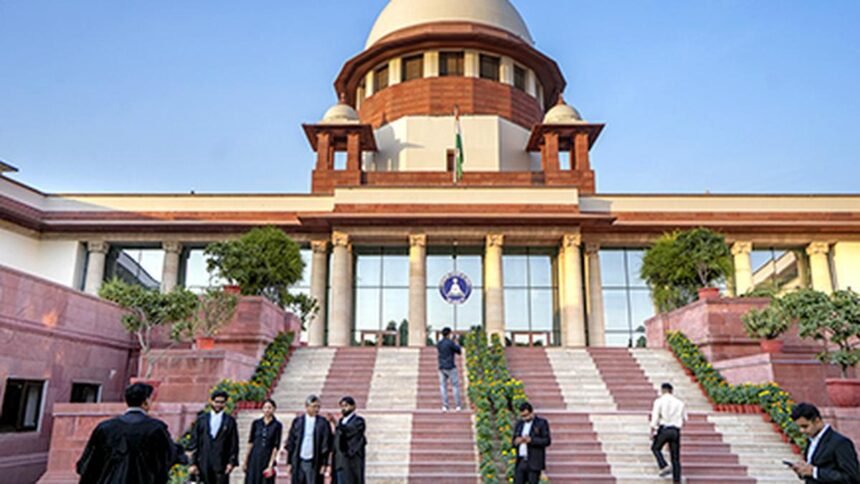Supreme Court | Photo Credit: PTI
The Supreme Court on Thursday (November 7, 2024) said that sexual harassment cases cannot be concluded after a compromise between the parties as such crimes have serious impact on society.
The observation was made as the Rajasthan High Court quashed an order quashing an FIR filed against a teacher accused of molesting a 16-year-old at a school in Rajasthan’s Sawai Madhopur district. Girls are sexually harassed.
A bench of Justices CT Ravikumar and Sanjay Kumar said the high court had misread and misapplied the law laid down to quash the FIR case and all further proceedings.
“This crime against children should be regarded as heinous and serious. It goes without saying that this crime cannot be regarded as an offense of a private nature and, in fact, it must be regarded as an offense of a public nature criminal behavior.
Condemned the High Court’s decision
“We do not understand how the High Court came to the conclusion that in the present case there was a dispute to be resolved between the parties and in order to maintain harmony the FIR and all further proceedings thereon should be quashed even without notice. To the subject matter The charges leveled against the third accused in the FIR,” the judge said.

The Supreme Court also dismissed the submissions of the teacher and the victim’s father challenging the locus standi of the PIL petitioner in the case. “When the FIR is quashed by invoking the powers under Section 482 of the CrPC, the accused is discharged from the responsibility of undergoing trial and coupled with the above circumstances and the legal position of the third party to maintain the plea under Section 136 as revealed in the above decision , we have no hesitation in holding that the challenge based on the position of the appellant has no merit at all under the Constitution of India.
The Supreme Court said that an incident of this nature and seriousness allegedly took place in a high school and was also committed by a teacher and cannot be simply described as a purely private crime without serious impact on society.
Regarding the termination of the investigation
“We have no hesitation in holding that in a case of this nature, given the compromise reached between the parties, the chances of conviction are slim and remote and this fact cannot be a reason to abruptly terminate the investigation by quashing the FIR and all further steps taken thereunder. procedure, by invoking the powers under Section 482 of the CrPC,” the bench said.
The judge said that under Section 7 of the POCSO Act, the defendant’s conduct would amount to the crime of “sexual assault”, which is punishable by a term of imprisonment of not less than three years and not more than five years.
“They will reveal that such a crime against a child should be considered heinous and serious. It goes without saying that the commission of such a crime cannot be taken lightly as a crime of a private nature. In fact, such a crime must Will be punished.
“We make it clear that we will not be understood to have expressed any opinion on the merits of the case,” it said.
In 2022, Ramjilal Bairwa, a native of Gangapur, Rajasthan, filed a PIL challenging a serious non-compoundable criminal case concluded by the High Court in which the accused Never arrested.
On December 2, 2022, the Supreme Court converted the PIL into a special leave application under Article 136 of the Constitution.
The teacher named in the FIR was never arrested and a compromise was allegedly struck between the girl’s family and the accused, according to the plea.
Taking into account the compromise submitted to the High Court, the High Court allowed the petition filed by the defendants and quashed the proceedings.
While the high court was said to have taken note of the prosecutor’s objections, it closed the case on the basis of the Supreme Court’s judgment which said even non-compossible cases can be concluded on a compromise basis between the parties.
Published – November 8, 2024 09:03 AM (IST)

